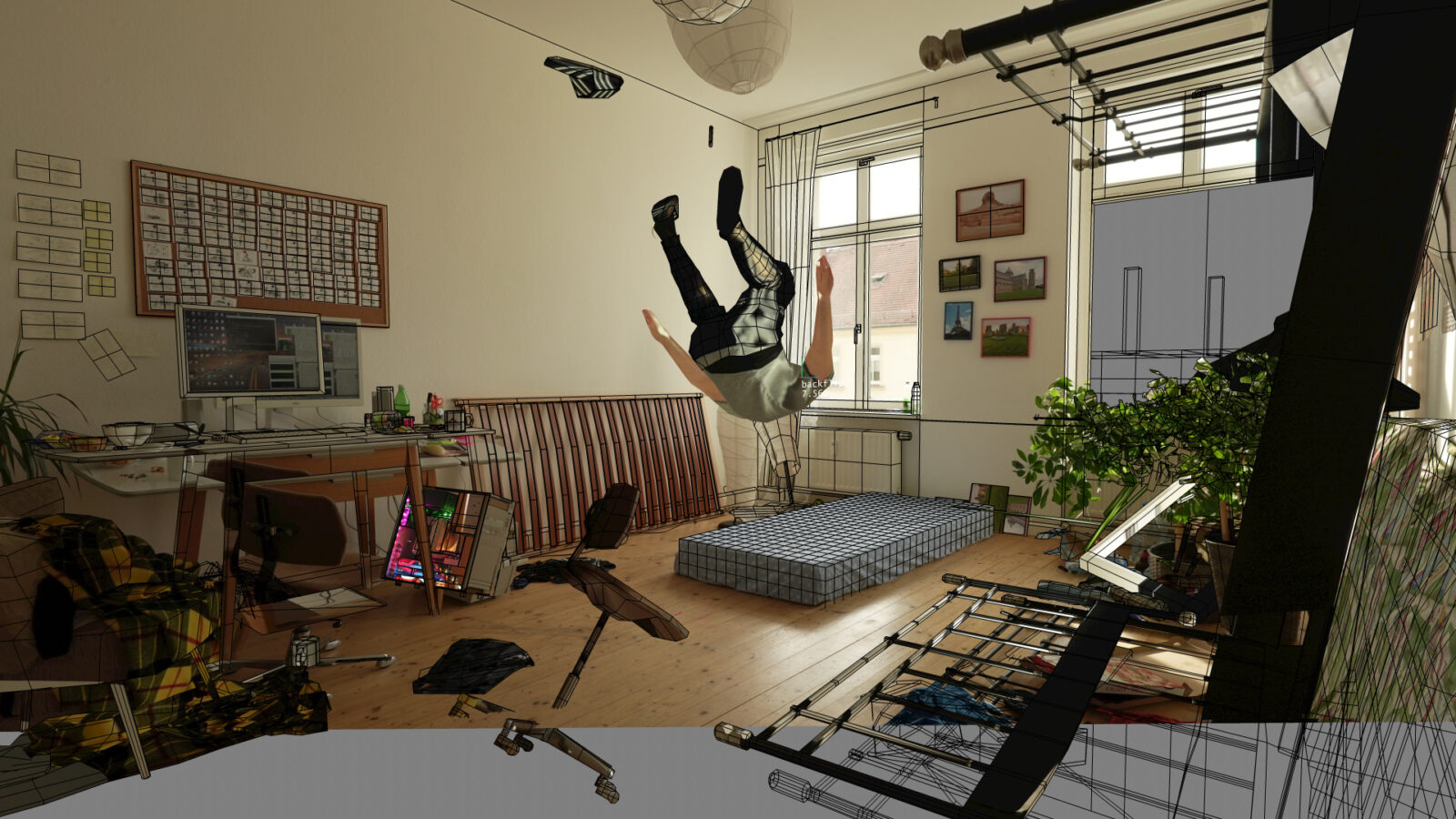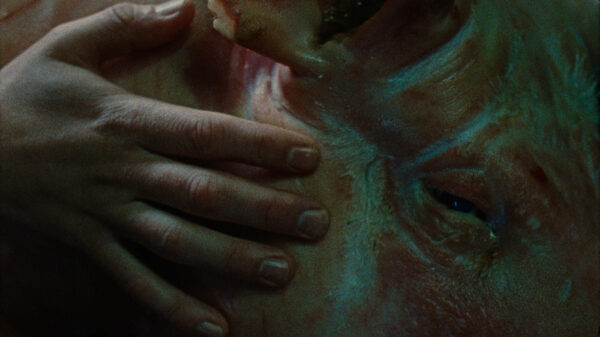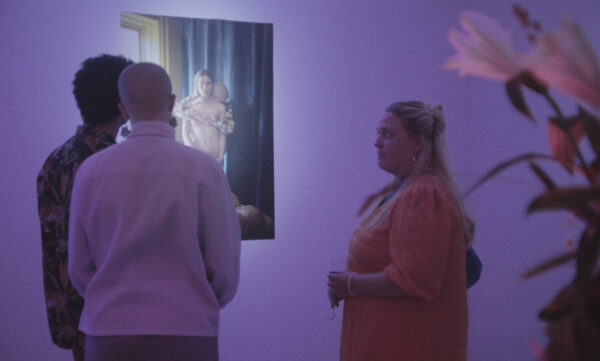8.640 Jumps A Day
backflip
What if we allow ourselves to witness a virtual avatar going through the painful learning process of doing a backflip, entirely on its own?

For the past few years, thanks to the billions of dollars annually invested by giant tech companies, deep reinforcement learning has been the name of the game within the fields of AI and machine learning, and the hype train surrounding this method of advanced computing has so far shown no sign of fatigue among AI enthusiasts and researchers alike. More and more technologies related to healthcare, climate change, robotics, self-driving cars, and image and text generation are increasingly relying on such advancements, and in 2022, Forbes Magazine went as far as claiming that it’ll soon be recognized as one of “the most transformative technology humanity has ever developed” alongside fire and electricity. The craziest thing is that they actually might be right.
But what exactly is it? Coming from a non-expert like myself, the best I could say is that it’s a highly complex process built to train artificial intelligence’s deep neural networks (their ‘brain’ so to speak) so that they can learn and accomplish a specific task, primarily through trials and errors, all by themselves. It’s impressively effective. 2022 has been a particularly fruitful year of advancements spectacularly hitting the mainstream radars. You may have heard about MidJourney, Stable Diffusion or OpenAI’s Dall-E, the new image-generating AI’s that have baffled the art world with some pictures going as far as winning art contests. Or, you may also have heard about LaMDA, Google’s supposedly ‘sentient’ text-generating AI, all the while being duped by the latest “memefied” deepfakes of Tom Cruise circulating on Tiktok. These all came to life thanks to deep reinforcement learning.
Among these discoveries released to the public was a research paper called DeepMimic, which peaked animators’ and video game designers’ attention in 2018 and still does to this day. It showed how humanoid avatars had rapidly learned to do complex movements by themselves, mimicking human behaviour almost to perfection. This is where Nikita Diakur enters the arena. The premise of backflip, his latest film, goes as follows: what if we use this technology and allow ourselves to witness a virtual avatar going through the painful learning process of doing a backflip entirely on its own? And what could we learn from such an endeavour? If you think this sounds like a funny next-gen version of Jackass, then you’re right. It is, and it’s hilarious. No wonder the film has enjoyed a prolific career in film festivals so far: it’s the perfect crowd-pleaser, but letting the slapstick comedy gags overshadow the film’s thought-provoking philosophy would also constitute a definitive mistake.
Citing a growing sense of fear towards the unpredictability of this new technology and the way these AIs tend to outperform humans in almost every task they do systematically, Diakur recently mentioned in a Q&A that he approached this project as a way to tame his aversion to machine learning. To get acquainted with, and god forbid, maybe even befriend the beast. Sinister examples of artificial intelligence dominating humans are plentiful in pop culture. So few of them have attempted to shed a positive light on our ability to live with AI. backflip does it in its own quirky way.
Supported by a dynamic head held-camera (the scenes are captured by a VR headset worn by the filmmaker), the virtual setting is minimalistic: an ensemble of textured meshes representing nothing more than an empty park and an apartment room, keeping our attention on the sole character of the film, the Avatar, which in turns loops our attention back to Nikita himself, the filmmaker wearing the headset. Indeed, the Avatar’s body is modeled based on a digitised photo of Nikita, and its voice results from a voice-cloning algorithm trying to mimic Nikita’s. The Avatar is Nikita. Keep this idea of ‘self-reflection’ in mind, as we’ll return to it later.
As the Avatar clunkily progresses towards its goal, failing times and times again at doing a backflip, knocking everything in its path and making me laugh uncontrollably (I’m a sucker for cheap gags, I plead guilty), the audience inevitably finds itself cheering and rooting for the poor lad. How couldn’t we? After all, creating an enduring emotional connection between a protagonist and the audience is one of cinema’s superpowers, and, of course, Diakur knows that. By cleverly putting the camera close to the Avatar, allowing the audience to sometimes literally breathing down his neck, he dupes them into anthropomorphizing him, groaning in pain when he lands on his head and gasping when he almost achieves a complete flip.
But it’s all a trick. Fake Nikita is a virtual machine. It does not have a body, he doesn’t fear nor feel pain, and in that regard, the real Nikita plays fair with the audience: he reminds us at times that this is, indeed, just a virtual experiment. The grey backdrop of the engine and the meshes used to generate the environment are always there to be seen. Yet, like a cat startled by its reflection in a mirror, we ultimately can’t help but trick ourselves into thinking that fake Nikita is a little bit real. And, perhaps, even a little bit aware. It’s as if we were wired to convince ourselves somehow that anything resembling us has to be somewhat like us. Empathy is a weirdly strong phenomenon.
And this brings me back to self-reflection, which begs the ultimate question: Who is the film’s real protagonist? Fake Nikita, the AI, or real Nikita, the human witnessing the AI? Or is it both? In the same Q&A mentioned above, Nikita says he initially envisioned the film as a competition between himself and his Avatar but later decided to scrap the idea. I think this is where our answer lies: it is both. Furthermore, I’d argue that the film is mainly about the relationship between both beings, artificial and natural, trying to mimic one another, leading to their inevitable fusion. One is the other, and vice-versa. AI is part of us, and we are part of the AI.
In the end, masqueraded as a motivational video (“practice makes perfect”), the film’s meta-structure, themes, and overall message are all about undressing artificial intelligence and seeing it for what it is, eye to eye. Sure, the machines’ learning power is nothing short of extraordinary, and their potential for greatness grows exponentially every day, but let it be remembered that they are, at their very core, a reflection of our equally impressive learning capabilities. So, you know what? I’d wager Diakur would agree with me here: it’s okay to celebrate robots and virtual machines’ rapid achievements, as scary as they may initially appear to us, because, ultimately, they’re our own. We’re the cat, and what we’re looking at.. is just a mirror.






There are no comments yet, be the first!